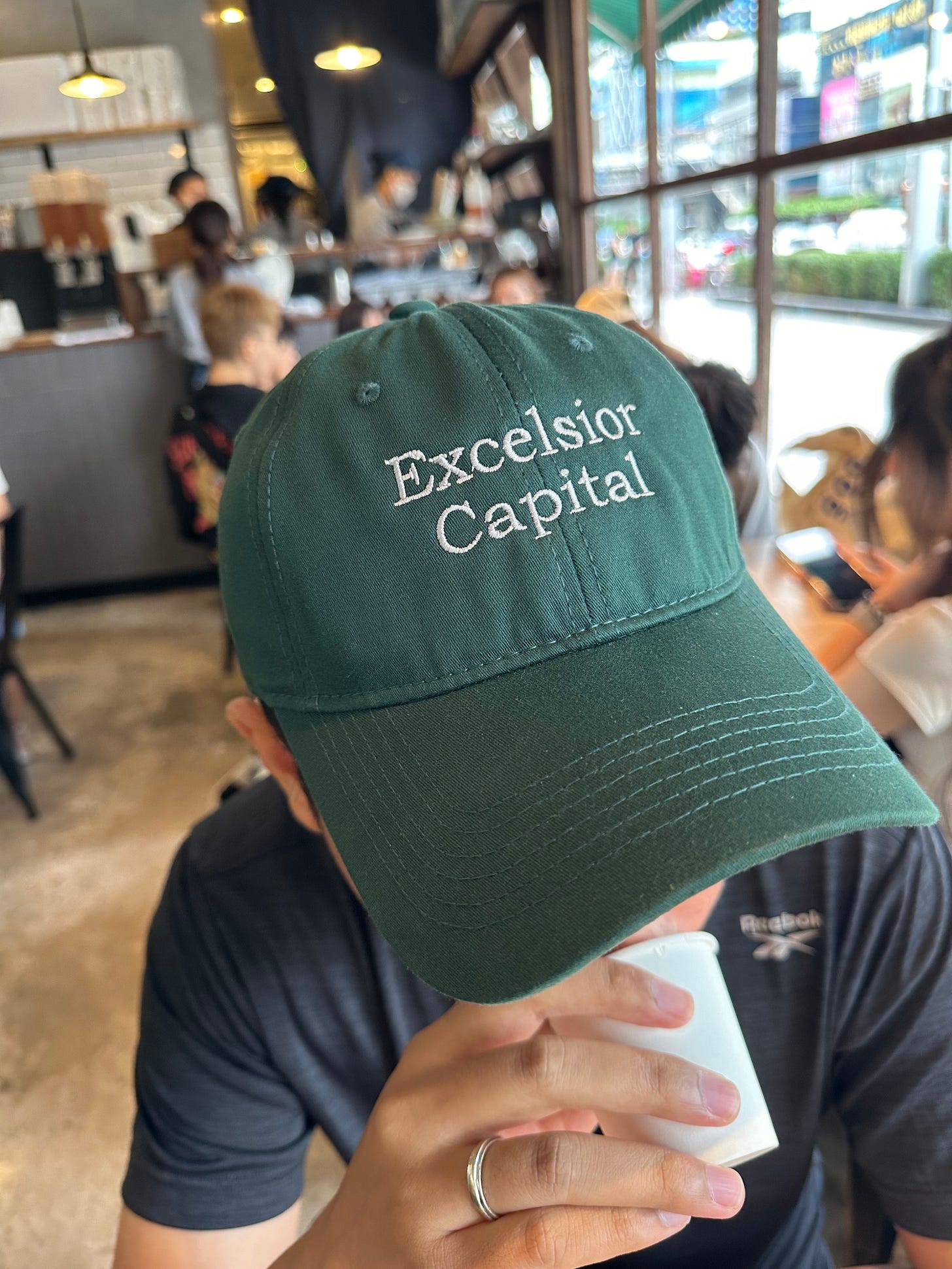What a Year in Substack Taught Me About Writing and Investing
Twelve months of writing taught me the same truth about markets and life: progress beats perfection.
It’s hard to believe it’s been a year since I started writing here. What began as a small experiment has turned into one of the most rewarding parts of my routine. Looking back, I’m a little surprised by how much I’ve learned, not just about writing, but about investing, and more importantly, about myself.
If the me of a year ago could see me today, he’d probably be shocked. Back then, I was obsessed with finding the perfect topic, the perfect stock, the perfect framework. What I’ve learned is that perfection doesn’t exist. The real value is in the process, the trial and error, and the lessons along the way.
The real value lies in the process and the lessons you learn along the way.
That’s why I don’t just write about Earnings Power Value or DCFs. Techniques alone won’t make you a better investor. Reading widely (i.e., psychology books, mathematical essays, even other Substack posts) shapes how I think. The best investors I know are able to balance fundamentals with market reality, and to “dance” between the two until they form conviction.
This newsletter is, and will always be, a work in progress. I learn constantly—not just from the material I read, but also from fellow Substack writers who share their thoughts openly. (And yes, I try to drop comments whenever I can—you know who you are!)
So, one year in, here are the three biggest lessons I’ve taken away:
1. Investing Isn't Rocket Science. It's About Understanding
When I first started, I was constantly drowning in information. I’d read dozens of stock pitches, convincing myself I needed to know every single detail before making a move. I was looking for the one perfect reason to buy, and the truth is, that reason doesn't exist.
My biggest takeaway is this: Stop obsessing over every pitch.
Read a few, and if you can't grasp the core business or the industry, just move on. It’s better to understand a handful of companies deeply than to have a superficial knowledge of a hundred. If you're losing sleep over an investment, it's not the right one for you. Don't invest if you don't have the risk appetite. Period.
The goal isn't to become a financial genius; it's to become a knowledgeable and confident investor who can make decisions based on conviction, not fear (or worse, FOMO).
2. You Will Make Mistakes. Learn From Them.
One of the hardest lessons to accept is that you will make a wrong decision.
You will fail. And that's okay.
Investing isn't about getting a perfect score on a math test. It's about adapting and evolving.
I used to get hung up on things like a perfect margin of safety. Is 10% enough? Do I need 20%? The reality is, there's no single right answer. Your investing framework should be your own. The most important thing is to make a decision and then own it.
Being indecisive because you're afraid to lose money isn't investing; it's speculating. The people I know who have achieved financial success didn't start their journey thinking they'd get a 100x return. Many were lucky to find a 2x or 3x bagger. They focused on their process, accepted their losses as lessons, and built their framework with those experiences. Investing is about progress, not perfection.
3. Luck Is a Bigger Factor Than We Admit
When we look at top-tier investors, it's easy to assume their success is purely a result of their technical skills and rigorous analysis. I’ve come to believe that’s only part of the story. Yes, many put in an incredible amount of work, but that's not the only factor. You have to factor in luck.
Maybe they were in the right place at the right time, or they connected with a key industry expert who gave them a valuable insight. They are skilled, but their success isn't just a byproduct of that skill. This doesn’t diminish their achievements; it simply adds a dose of reality.
Acknowledging the role of luck can be incredibly freeing. It helps you stop comparing your portfolio returns to others and focus on what you can control: your own diligence, your framework, and your decision-making.
So here we are—one year in. This Substack has taught me more than I could have imagined, and much of that learning has come from you, the readers. Thank you for reading, commenting, challenging, and encouraging me along the way.
Here’s to year two—and to more learning, more mistakes, and hopefully, a little more luck.



